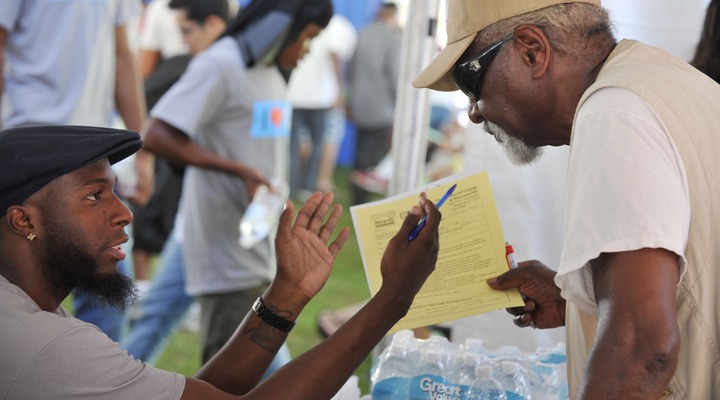Throughout the post, “we” refers to GiveWell and Good Ventures, who work as partners on the Open Philanthropy Project.
The Open Philanthropy Project has recommended a grant of $1.75 million (plus a personal gift from Cari Tuna of $250,000) to launch the Alliance for Safety and Justice (ASJ), a multi-state policy reform organization. This will be one of our first large grant recommendations within criminal justice reform since Chloe Cockburn joined us to lead our work in that area.
ASJ is being incubated by and modeled after Californians for Safety and Justice (CSJ), a state-based justice reform advocacy organization led by Lenore Anderson and Robert Rooks. CSJ has spent the last four years working on criminal justice reform in California, including by developing the first statewide organizing network for crime survivors that support justice reform. Vote Safe, the sister 501(c)(4) organization of CSJ, also crafted and ran the successful campaign for Proposition 47, a Californian ballot measure that changed several low-level crimes from felonies to misdemeanors and reallocated the prison cost savings into prevention and treatment. In the first year after the measure passed, California's jail and prison population is estimated to have fallen by 13,000 people. We view CSJ's work as an unusually successful example of state-based advocacy and organizing in the criminal justice reform space.
ASJ will build on these strategies to bring Anderson's and Rooks' strategic and policy sophistication to bear on state-level efforts across the U.S. ASJ aims to advance state efforts to reduce incarceration and reallocate from spending on prisons to prevention and community health. ASJ plans to select partner states to engage deeply with, in order to help state advocates strengthen their communications, alliance-building and organizing strategies and win policy reform. ASJ also plans to build a national 'center of gravity' for state advocates to share information and strategies across states and give more prominence to state-based reform efforts in the national dialogue on justice reform. Finally, ASJ aims to change the national narrative on safety by drawing attention to the experiences and voices of crime survivors calling for new safety priorities.
The closest analogue to ASJ's proposed strategy is the Freedom to Marry campaign, which was a nationally coordinated effort that brought resources and capacity to the states, partnering with state groups that worked on a variety of issues and bringing their focused attention to bear on a key target. In that case, it was marriage equality that was the chief focus; here, it is reducing mass incarceration.
Examples of policy areas where reform could potentially decrease incarceration while improving community safety include reforming mandatory minimum sentencing laws, reforming parole systems, reclassifying low-level offenses (as in Prop. 47), and increasing investments into diversion, treatment, and trauma recovery support for crime survivors. We appreciate ASJ's strong focus on both reduced incarceration and increased community safety.
Chloe believes that:
- Criminal justice reform is receiving an unprecedented amount of national attention from both sides of politics, but this attention has not yet been converted into enough major policy victories within individual states, where the majority of the nation’s over-incarceration problem exists.
- ASJ's team, structure and goals will position it well to make headway and build momentum within criminal justice reform more broadly.
We hope that ASJ will become a major player in criminal justice reform nationally, and are excited to support what we see as a very strong team. The grant Open Philanthropy has recommended would support ASJ's 501(c)(3) arm; Cari Tuna has also made a personal gift of $250,000 to support the 501(c)(4) arm.
We plan to publish a more detailed write-up in the near future.


